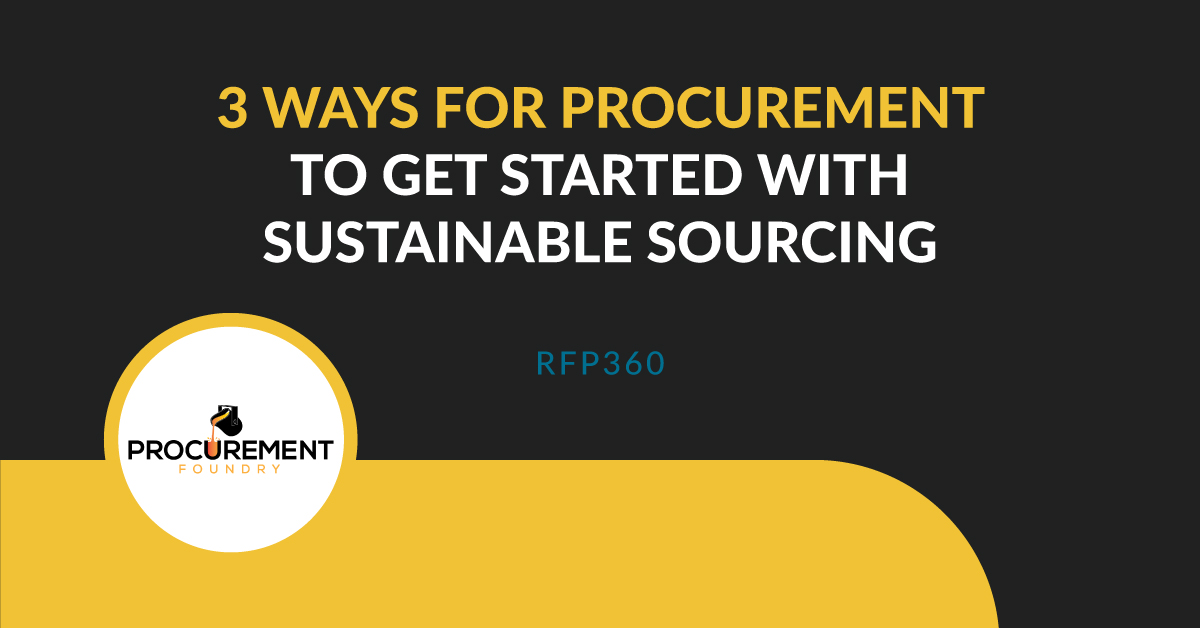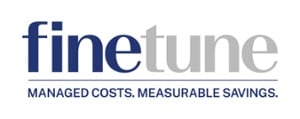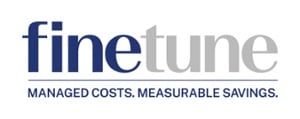Maximizing Savings Opportunities and Procurement's Strategic Value for CPOs
Saving money is not always about pinching pennies: advanced and data-driven insights enable you to identify real cost-saving opportunities, negotiate...
3 min read
![]() RFP360
:
5/17/22 12:43 AM
RFP360
:
5/17/22 12:43 AM

Sustainable sourcing is a key initiative for many procurement teams, but it can be difficult to know where to start. If you are among the ranks of overwhelmed but eager procurement practitioners wanting to make moves toward greater sustainability, our article explores how to take those first steps.
Sustainability is a growing customer consideration and for good reason. With ongoing environmental policies and ESG concerns becoming more prevalent, procurement needs to ensure that their organizations are compliant and ready to go. Additionally, their suppliers must also be compliant, even in the sub-tier.
Consequently, organizations need to find ways to make changes including improving internal practices, benchmarking current performance, ensuring supplier sustainability and more. Let’s dive into how you can get started at your organization by incorporating sustainability into your sourcing strategy and ongoing vendor performance evaluations.
Your sourcing process plays a crucial role in supporting your sustainability efforts. There are three simple ways procurement can achieve easy wins to influence sustainability.
Organizations must get the lay of the land and benchmark their current state. Part of accomplishing this involves asking vendors about their existing practices and policies, including if they track their own supplier sustainability.
This is the standard rule of thumb when you kick off any sustainability initiative: You ask your existing suppliers the core questions that will help you pinpoint where you are and where you need to grow. Example queries for your vendors could include:
The answers to these questions will help you establish a baseline and create a collective plan for improvement across your organization, including vendors in your supply chain network.
Speaking of creating a plan for improvement, you’ll want to establish specific goals. Conducting a vendor performance evaluation is an excellent first step, as it will show you where you are and what you need to do to improve. You can set your specific goals according to the information found through this evaluation.
Then, you can start a review process and include periodic improvement during quarterly or bi-annual vendor performance reviews. This will help you keep a constant eye on your progress as you move toward reaching your greater sustainability goals.
When selecting new vendors, start things off on the right foot from day one by asking for exactly what you want to see moving forward in your relationship. The fastest (and easiest) way to influence vendor sustainability is to create a list of core questions that you can select from and add to any RFx.
You can also opt to create and issue a separate sustainability assessment as a part of your RFP process. Ideally, your questions should cover environmental, societal, and economical sustainability efforts.
A remarkable amount of technology innovation and adoption has entered the market within the last few years. As procurement technology becomes more specialized and efficient, organizations are utilizing it to aid them in their efforts toward greater sustainability.
Listed below are just a few examples of the valuable technological tools being used today:
RFP360, RFP management software – RFP management software can create templates that include the standardized sustainability questions mentioned above.
Circulor – Supply chain traceability allows you to track raw materials from the source to ensure sustainable practices are being followed from A to Z.
Ecovadis – This respected and trusted sustainability ratings and improvement provider acts like a Better Business Bureau (BBB) but specifically grades for sustainability.
The bottom line is that sustainable sourcing matters, and consumers are watching. Mike Clasper, President of Business Development at Proctor and Gamble’s European branch, said it best: “People are going to want, and be able, to find out about the citizenship of a brand, whether it is doing the right things socially, economically and environmentally.” You want your brand to be on the right side of history, or more importantly, the future.
Ready to get started building better, faster RFPs that support sustainability? Get a demo from RFP360 today.

Saving money is not always about pinching pennies: advanced and data-driven insights enable you to identify real cost-saving opportunities, negotiate...

The topic of our recent roundtable discussion with a dozen Procurement Foundry community members—exploring potential flaws in procurement incentive...

Every 30 days or so, I get the same alert on my phone—“Your electricity bill is available for viewing.” I take a quick look, make sure nothing seems...